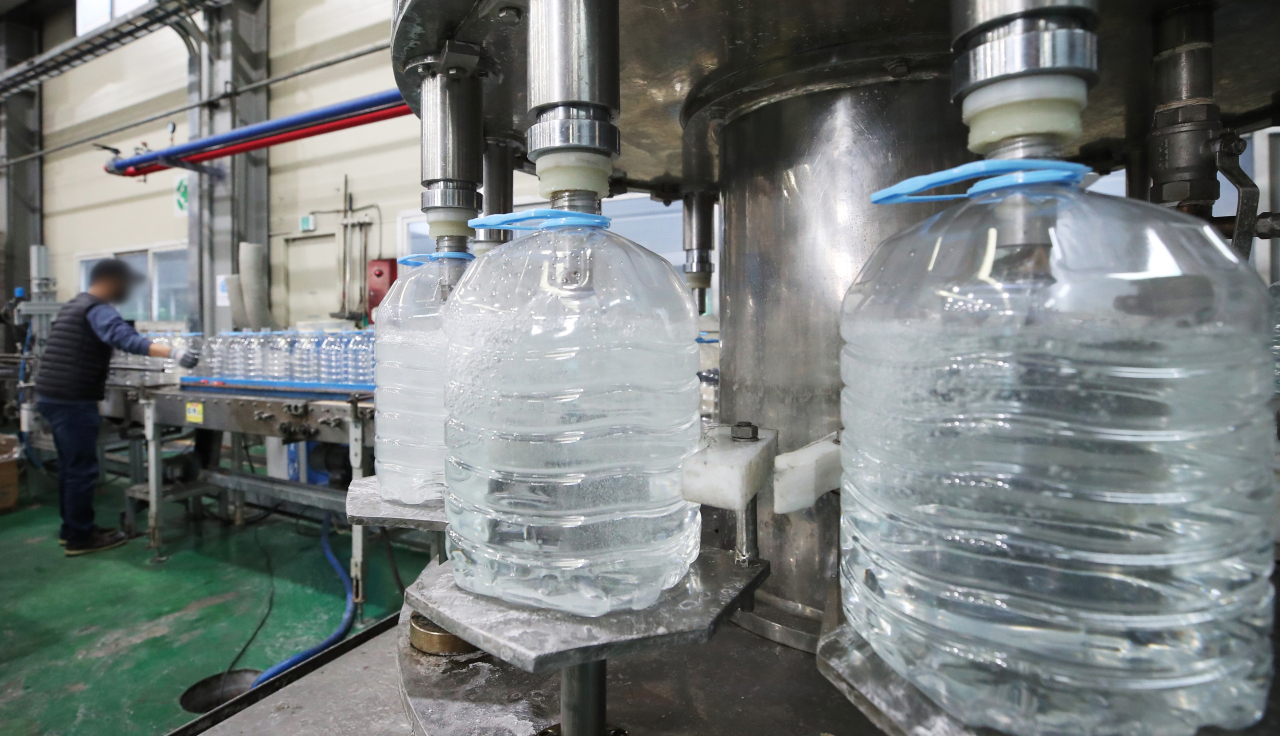Government to manage urea supply and demand, cut tariffs
Urea solution limited to 10 liters per purchase until year-end for passenger cars
By Shin Ji-hyePublished : Nov. 11, 2021 - 12:21

Prime Minister Kim Boo-kyum said Thursday that the government would cut tariffs on urea and directly manage domestic supply and demand to ease the ongoing supply crunch.
Urea solution is used in diesel vehicles and for industrial facilities to reduce emissions.
South Korea relies on China for 97 percent of its urea. But China’s recent clampdown on exports due to a lack of coal -- the raw material in urea production -- and consequent power shortages have sent jitters across Korea.
“The unstable supply and demand of factors that began with China’s lack of coal supply is having a great impact on the domestic industry,” Kim said at a meeting.
“There are difficulties in operating cargo vehicles, which are the core of transportation and logistics, and anxiety is spreading” among workers about their livelihoods, he said.
He said the government intends to implement “emergency supply and demand adjustment measures” for urea and urea solution to stabilize domestic supply and demand.
“Until a sufficient quantity of urea solution is secured, we will manage supply and demand through orders for import, production and sales and designation of sales methods so that the secured quantity can be supplied efficiently where necessary,” Kim said.
Under the measures, the purchase of urea solution will be limited to 10 liters per person for passenger cars until the end of the year. For cargo trucks and construction and farm equipment, it will be 30 liters per person.
In addition, only gas stations will be allowed to sell urea solution. Sales of the item via online retailers will be prohibited, as will its resale by consumers.
Authorities said the emergency measures will take effect through the end of this year until the price returns to the previous level. Ten days ago, the retail price for 10 liters of urea solution was 12,000 won ($10). Now it hovers above 100,000 won.
Under the emergency measures, local importers must report to the government on a daily basis and specify details about the urea and urea solution they bring in, including the purpose and information about sales and inventory.
They also have to report on expected shipment volumes over the next two months so the authorities can issue accurate forecasts.
Violators can face imprisonment for up to three years or fines of up to 100 million won under the Price Stabilization Act, the government said.
The government will also cut tariffs on urea imports.
“For additional imported urea, we will reduce the tariff so that there is no difficulty in diversifying import lines,” Kim said.
He asked the related ministries to make thorough preparations so that the measures can be effective immediately at the front line.
The urea chaos surfaced in Korea at the end of last month, but signs had already begun to emerge Oct. 11. On that day, China announced it would mandate pre-export inspections of urea and potassium fertilizers that had previously been exported without separate inspections.
Ten days later, a Korean diplomatic office in China published a report about an industry complaint that customs clearance on urea was difficult, but stopped short of a warning. It was only on Nov. 2 that the government recognized the seriousness of the problem and held a meeting with related ministries in earnest.
On Thursday Lee Jae-myung, the ruling Democratic Party’s presidential candidate, met with Xing Haiming, Chinese ambassador to Korea, and asked him to cooperate actively with the Chinese government, referring to the scarcity of urea imports.
Regarding the recent export restrictions, Xing said, “China did not aim at a specific country.” He added, “We also lack a lot of (urea).”
He said China takes the difficulties facing Koreans very seriously, and he promised to report what Lee told him to the Chinese government.
“The two countries are a ‘fate community’ that cannot be separated from each other,” he said. “Thousands of elements are intertwined.”
By Shin Ji-hye (shinjh@heraldcorp.com), Kim Da-sol (ddd@heraldcorp.com)









![[Hello India] Hyundai Motor vows to boost 'clean mobility' in India](http://res.heraldm.com/phpwas/restmb_idxmake.php?idx=644&simg=/content/image/2024/04/25/20240425050672_0.jpg&u=)









